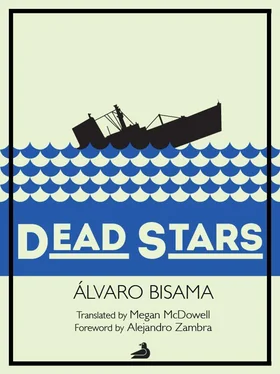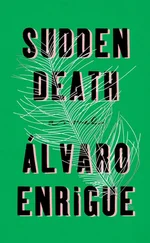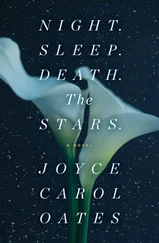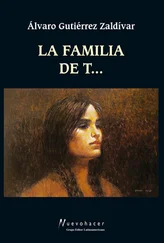"I don't know where he's headed," a friend of mine said to me about Álvaro Bisama a few years ago, and I don't think he meant it as a compliment. It's hard, though, for me to think of a more flattering and appropriate way to describe a writer's work. What my friend was trying to capture, with his tone of doubt or disappointment, was the feeling of disquiet Bisama's books provoked in him; or, better said, how each new book forces him to discard any theories carried over from the previous one. As each new book "illuminates" the previous ones, it modifies the system not only going forward, but also backward. I cannot say, either, where Álvaro Bisama is headed, and I'm grateful for that uncertainty. While I think it's unquestionable that the path leading from Caja negra ( Black Box , 2006) to Los muertos ( The Dead , 2014) is the trajectory of a single writer, it's also obvious that this writer has found ways to change direction and heed the road signs from a space and a language that are constantly shifting.
From the very beginning — starting with Caja negra or even earlier, since a complete appreciation of Bisama's work should take into account the articles compiled in Zona cero (2003) and the sometimes incendiary, other times compassionate, always unpredictable literary criticism that he published in the Chilean media over many years — Bisama has been a writer who seems willing to blend everything together, to dissent from official, accepted divisions and combinations, and perhaps that's why his early work was received to some degree as an experimental, fragmentary literature, full of gestures toward pop culture (mostly cinema and music). All of that is undeniable, as was (is) the enjoyment: Bisama seemed to delight in composing those lists, in using unprecedented settings (from the beginning, his work dealt with spaces that hadn't figured in Chilean literature before — the space of the provinces, for one, but from the experience of the people who grew up there in the eighties), and especially in the proliferation of stories within stories.
At this point, following in the sacred custom of the Chilean literary establishment — to disqualify out of hand anything that sounds new, anything that threatens the status quo, anything that obliges us to view Chilean literature as a book in a state of permanent revision — there were some who objected that in order to understand Bisama's books, a reader needed to recognize countless obscure references, that Bisama talked about an inaccessible and improbable world. I think, on the other hand, that those books launched into orbit heretofore unseen representations of Chilean society: to silence those novels of Bisama's was a more or less underhanded way to silence that world, to impede the explosion of voices tuned to a different register; voices that, like the voices of the dead in the Spoon River Anthology , speak in a chorus but without hiding their differences, without appealing to some kind of homogeneity, without normalizing themselves to cover over the fissures of History.
Originally published in 2010, Dead Stars is an apparently very different novel from the ones Bisama had published before, particularly for its elegiac, disillusioned tone, for its acidity, for the hypnotic sadness that runs through its pages. The nineties are shown here the way they were for our generation, the people who were children during one dictatorship and who grew up under another one, less obvious, but searing and corrosive all the same: Pinochet was still in power, directing everything by remote control, and Chilean leaders, making an enormous effort to hide their fear, seemed determined to demonstrate that nothing was happening, that everything was all right, that Chile had been cured, overnight, of all its wounds, that we should be making champagne toasts to celebrate a reconciliation that is absurd and impossible (still). This is a harsh book about the legitimacy of pain, about everyday violence, about the moment when not even love is a refuge, that final utopia you can grasp hold of.
I think that in Álvaro Bisama's books — like those of Alejandra Costamagna or Carlos Labbé, among other generationally linked authors — a crucial problem of our generation is dramatized: the vacillation between "I" and "we"; in short, the desire to construct a genuine collective story. It's no wonder, then, that Bisama's most recent book, Ruido , is written in the first person plural, and that Los muertos —his book of short stories just published in Chile — can be understood as a series of dramatic monologues where the characters from Caja negra or Música marciana allow the camera to approach in the closest of close-ups. I mean: at this point Bisama has not written one or two good books, but rather an entire literature, and we his readers are thankful not to know where he's headed. I'm sure that he himself doesn't know, in fact, because like all true writers, he writes to discover, not to confirm previously held ideas: to write is, for Bisama, a dangerous, enjoyable, and radical adventure.
— Alejandro Zambra
This is not a love song
This is not a love song
This is not a love song
This is not a love song
John Lydon, Public Image Ltd.
We'd be down in the port at the Hesperia café, 8:30 in the morning. Talking about whatever. She'd be chain-smoking, and I would shred the skin of my lips with my teeth. Those nervous habits were all we had left in those days, when the Laguna Verde forests were on fire and the wind from the south blew the black smoke over the hills on the horizon. With that dark sky hanging over the port, I couldn't help but think how those ashes floating in the air were like the ashes from concentration camp ovens or the flecks of human skin an atomic bomb leaves behind. We were devastated. Even before she opened that newspaper, we were done for. What we had, our life together, was coming to an end. We would head to the Hesperia to pass the time while we waited for offices to open so we could begin whichever formality of our separation was slated for that day. Nothing to say, nothing to say to each other; we'd order peach juice, cappuccinos, or just water, and we'd sit in silence for hours or minutes, looking at the photos hanging on the wall — a series that showed a ship going down in open water. Sometimes we bought newspapers and divided up the pages while we made small talk, hoping to kill time and trying to ignore our reflection in the gigantic mirrors behind the bar, where a dark and twisted version of ourselves looked back at us, mocking us from an alternate world where we — that couple sunk in a silence barely contained by monosyllables — would leave the bar, desperate, and go have sex in some flea-ridden hotel on Calle Chacabuco. But that happened in the mirror world, of which we knew nothing beyond what we could see: a reflection we avoided out of shyness or shame, taking refuge in the assumption that it was not and would never be us, that it was just the illusion of an impossible life, a life that we would never know. All the same, we would stay in the Hesperia and talk about whatever, or reverentially read the newspaper's headlines in order to avoid mentioning what was happening to us in the final hours of our life together. And it worked. We weren't even angry, or ashamed. The time for recriminations was already past. It worked for us until that morning when she looked at the newspaper, started to cry, and then showed me a photo of a woman being escorted by two policemen.
Читать дальше





![Джеймс Чейз - Safer Dead [= Dead Ringer]](/books/430347/dzhejms-chejz-safer-dead-dead-ringer-thumb.webp)






